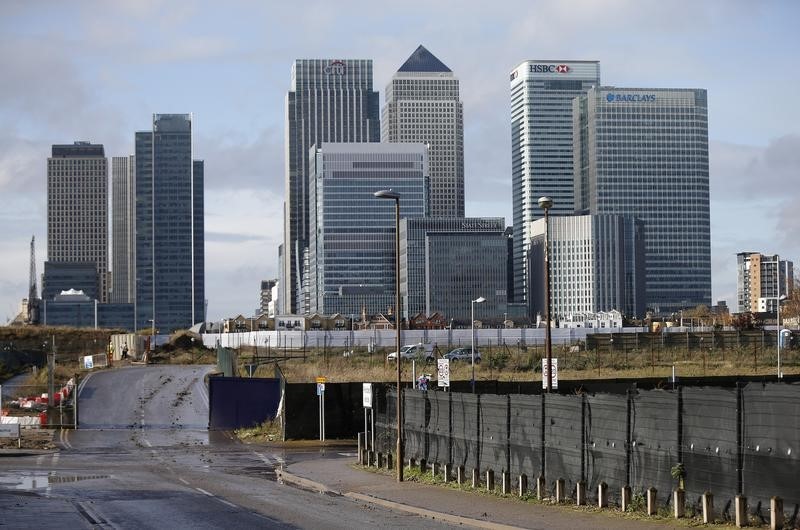By Matt Scuffham
LONDON (Reuters) - Britain's banks will not be broken up or forced to ditch free banking services to improve competition in the industry, alleviating the fears of the country's dominant lenders.
The Competition and Markets Authority (CMA) instead recommended measures to make it easier for Britons to compare the full costs of accounts, telling banks on Thursday to provide clearer information.
"Today's findings will probably be seen positively by the larger banks as the CMA have not found evidence of excessive profits, have steered clear of proposing an end to free banking and have not suggested further divestments," said Simon Hunt, PwC's UK banking and capital markets leader.
Regulators and lawmakers are keen to break the dominance of the country's biggest four lenders -- Lloyds Banking Group (L:LLOY), Royal Bank of Scotland (L:RBS), Barclays (L:BARC) and HSBC (L:HSBA) -- which control more than three-quarters of current accounts and provide nine out of 10 business loans.
The competition watchdog launched a review of the market for personal current accounts and small business banking services in November last year.
In its preliminary recommendations, the CMA decided against forcing banks to charge fees for customers who are in credit, saying it saw no convincing evidence that free accounts distorted competition.
So-called free banking has been criticised by consumer groups who point out that banks make money because interest rates on personal current accounts are often lower than the benchmark rate set by the Bank of England. Customers are also charged for going overdrawn without permission.
The CMA also had the power to order a break-up of banks considered too dominant, but has decided against such a move, saying problems in the market were unlikely to be solved by creating more smaller banks.
The watchdog said it had identified a number of competition problems in both the personal current account (PCA) and small-and-medium-sized enterprise (SME) banking markets. It said low levels of customer switching meant banks were not being put under enough competitive pressure, and new products and new banks did not attract customers quickly enough.
The CMA recommended banks prompt customers to review the services they receive, make it easier to compare products, create a new price comparison website for small firms, raise public awareness of how to switch accounts and share information more effectively to make it easier for small firms to shop around.
The CMA will now consult with banks and other parties about the proposals before publishing its final recommendations next April.
Richard Lloyds, executive director of consumer group Which? said the proposals didn't go far enough.
"The regulator now has six months to find more radical ways to promote switching, improve information for consumers and punish those banks who fail to treat consumers fairly," he said.
Paul Pester, chief executive of challenger bank TSB, said the recommendations were a "solid first step" but warned there was a "long way to go to bring real competition to UK banking".

Pester said last week that British banks make between 7 billion and 8 billion pounds a year from personal current accounts.